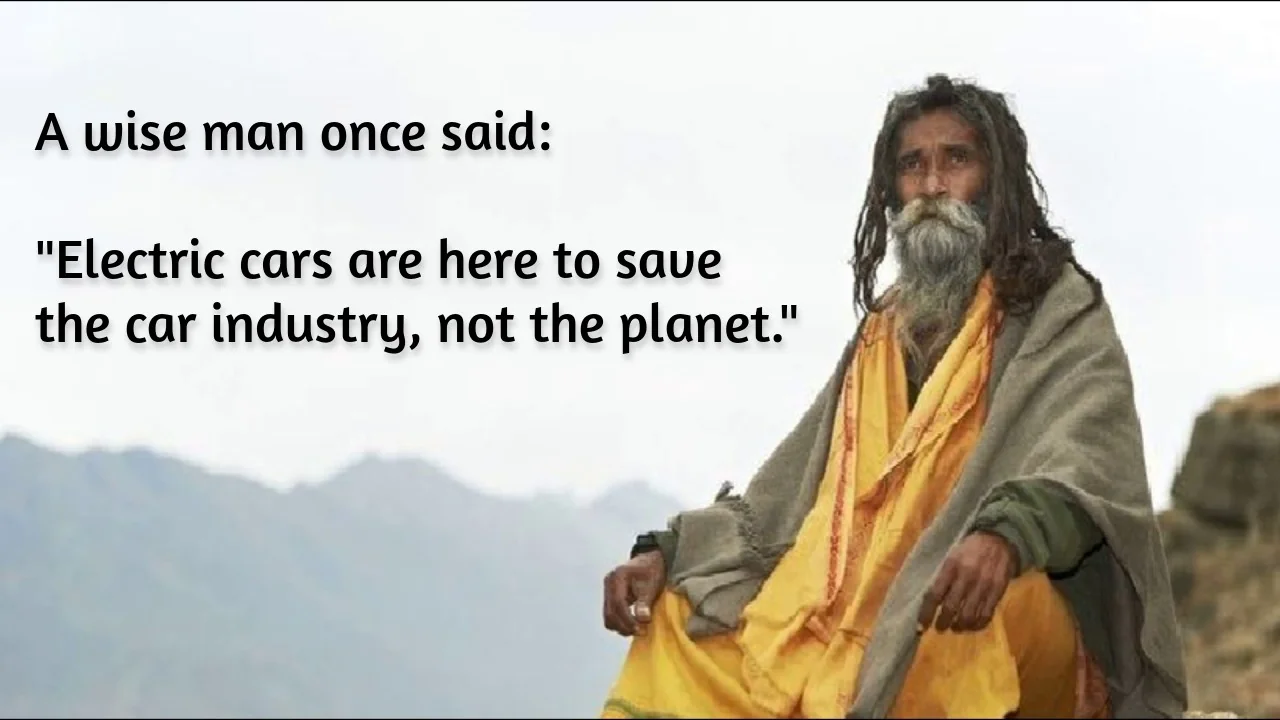Fuck Cars
A place to discuss problems of car centric infrastructure or how it hurts us all. Let's explore the bad world of Cars!
Rules
1. Be Civil
You may not agree on ideas, but please do not be needlessly rude or insulting to other people in this community.
2. No hate speech
Don't discriminate or disparage people on the basis of sex, gender, race, ethnicity, nationality, religion, or sexuality.
3. Don't harass people
Don't follow people you disagree with into multiple threads or into PMs to insult, disparage, or otherwise attack them. And certainly don't doxx any non-public figures.
4. Stay on topic
This community is about cars, their externalities in society, car-dependency, and solutions to these.
5. No reposts
Do not repost content that has already been posted in this community.
Moderator discretion will be used to judge reports with regard to the above rules.
Posting Guidelines
In the absence of a flair system on lemmy yet, let’s try to make it easier to scan through posts by type in here by using tags:
- [meta] for discussions/suggestions about this community itself
- [article] for news articles
- [blog] for any blog-style content
- [video] for video resources
- [academic] for academic studies and sources
- [discussion] for text post questions, rants, and/or discussions
- [meme] for memes
- [image] for any non-meme images
- [misc] for anything that doesn’t fall cleanly into any of the other categories
Recommended communities:
view the rest of the comments

What you are describing here sounds a lot like transit, but instead of designing a city to work well with it or developing wise transit routes, we'll just let autonoumous cars fill the role and continue wasting resources with inefficient methods of traveling.
This will reduce the amount of cars parking, as well as the amount of traffic in general. It will remove noise and air pollution from cities without costing the city anything to build and maintain new infrastructure. While bicycles and clean mass transit is the ideal, most cities cannot afford expanding mass transit, and that still doesn't make a dent in the overall traffic and accidents. Also, mass transit has a limit to service area and stops. So mass transit can sometimes leave people needing to walk a considerable distance. If they went shopping at the grocery, they don't want to carry the bags to the nearest bus stop. They can have their automated taxi service do doorstep to doorstep travel. Mass transit is awesome and has a purpose and value alongside the auto travel subscription service. They can both exist and both provide value to the population.
A big part of the problem with cars is that their existing infrastructure is already very expensive to maintain and promotes other utilities such as electical lines and water lines to be longer and therefore more expensive as well. After initial investments most transit and active transportation ends up costing less to maintain per trip than car infrastructure. Currently much of car infrastructure is heavily subsidized.
I think there would also be issues with a significant portion of the population not wanting to adopt a subscription based service over private vehicle ownership.
Right now, there would be some resistance, but I think you underestimate just how much people are to used to subscribing to services. This includes hardware and software. If I lived in the city, it would be a no brainer for me. No searching for places to park (and pay). No worrying if someone breaks in to my car or vandalizes it. No having to take it to the shop for tune-ups and inspections and all that for cheaper than what it was costing me to own a car. If a car's purpose is getting me from A to B, it is still the most direct option in most cities. Take Asheville for example (I live here and know the area). There's a bus system. The trolley is for tourists. But that bus system will not be efficient for the individual both in time and energy, if that individual lives half a mile or more from a bus stop. The city cannot afford to add more and more bus stops to ensure everyone's home is near one. The roads are already in place, and would have to be maintained for the buses (and other services that use the road such as emergency, police, fire, mail, etc) no matter whether or no subscription car services exist. With cities that are VERY huge, mass transit already forces people to have to abide by a bus schedule as well as a work schedule. People want freedom of movement.
I'm very pro mass-transit. But it cannot be held up as the singular fast transportation solution for a society. The subscription service is not meant to replace mass-transit. It is meant to reduce noise, emissions and traffic at the benefit of more affordable transportation for those who cannot always use mass transit. For example, I might have a subscription that gives me a certain number of miles per month. Now normally, I take the mass transit to work, day in and day out, but maybe on the weekends I like to have a night on the town with my friends. The car comes and gets me, drops me off at the club right where my friends are. We drink, we have fun, bouncing from club to club. End of the night, I push the "come get me" button on my app and the car will pick me up and take me to my house. I can use mass transit, but also have reason to want a quicker option than waiting on the bus schedule. Nobody obsesses over what someone is driving. We're all just ferried around by the service.
And we have seen how fast populations will adopt something if you hit the right buttons.